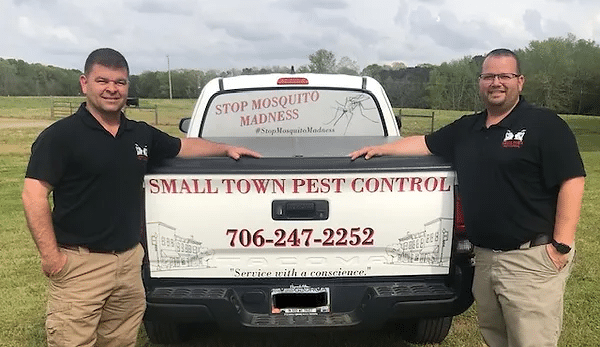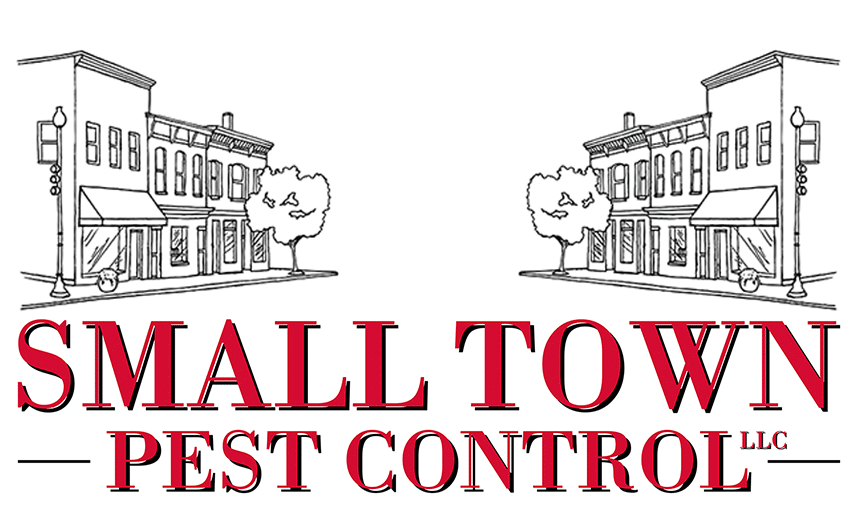Bee, Wasp & Hornet Control

In Georgia, there are many species of bees, wasps, hornets, and flying stinging pests. Some of them pose serious health risks, some can cause structural damage to your home, and others are just a nuisance.
When it comes to dealing with any stinging pests, professional assistance is essential for the safety and well-being of your home or business. Our expert team specializes in effectively addressing bee, wasp, and hornet infestations, ensuring a pest-free environment and peace of mind for your family.
In this section, we will provide you with valuable information about the potential risks these pests pose, the importance of professional pest control services, and how our dedicated team can help you tackle these buzzing intruders. Discover the benefits of our expertise and the comprehensive solutions we offer to keep your property secure from bee, wasp, and hornet infestations.

Carpenter Bees
Carpenter bees can be identified by their larger size (around 1 inch), robust body, and shiny black or dark brown color. Male carpenter bees may have a yellow or white upper abdomen, while females have a solid black abdomen. They have a smooth, hairless appearance compared to bumblebees. Look for perfectly round half-inch holes in wood, which serve as entrance points to their nesting tunnels.
Male carpenter bees are territorial and hover around potential nesting sites, while females are less aggressive. Carpenter bees also engage in pollination, hovering near flowers to collect nectar and pollen. If you suspect a carpenter bee infestation, it’s best to consult with Small Town Pest Control service for accurate identification and management.
Do Carpenter Bees Sting?
Yes. The female carpenter bee will sting if provoked – poking finger inside their burrowing tunnel is the most common reason people are stung. Otherwise, the female carpenter bee will just avoid contact with humans. The male carpenter bee will fly at you in an attempt to intimidate you away from their area but do not sting.

Wasps & Hornets
In Georgia, several common wasp species can be encountered. Some of the prominent wasp species found in the region include:
Paper Wasps
Paper wasps are known for their characteristic papery nests that are often attached to eaves, tree branches, or other structures. They are typically brown or reddish-brown in color and have long, slender bodies.
Yellowjackets
Yellowjackets are often recognized by their yellow and black striped bodies. They tend to build nests in the ground, but can also establish aerial nests in wall voids, attics, or shrubs. Yellowjackets are known for their aggressive behavior and can pose a stinging threat if their nests are disturbed.
Hornets
Hornets are larger wasps that are commonly known for their aerial nests, which are usually constructed in trees or shrubs. They have a brown or black coloration with distinct yellow or orange markings. Hornets are generally less aggressive compared to yellowjackets but can sting if provoked.
Mud Daubers
Mud daubers are solitary wasps that construct nests from mud or clay. They create elongated tubes or cells in protected areas like eaves, walls, or ceilings. Mud daubers are typically black or metallic blue in color and have a slender body.
Getting Rid of Bees, Wasps & Hornets Safely
It’s important to note that while these flying (and stinging) pests play a role in pollination and insect control, some species can become aggressive and pose a risk to humans. If you are experiencing bee, wasp, or hornet-related issues or have concerns about insect nests near your home or property, call Small Town Pest Control services immediately to handle the situation safely and effectively.
Get Bee, Wasp & Hornet Control Services

Contact Us
Tell us about your pest problem. We’re here to help you and your family.

Service Guarantee
We’re not just the local “bug man.” We’re also not the pest control franchise that will only treat you like an account number. We really care about your pest control problem. We’re also your neighbor! Your family can trust that we will resolve your pest problem – with a smile.



